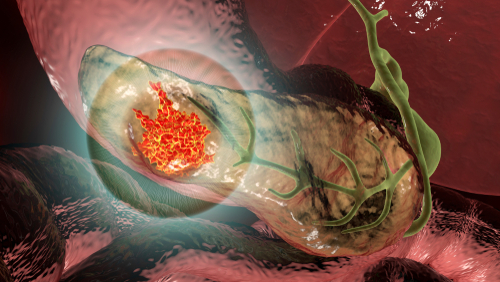
Patients with advanced-stage gastroenteropancreatic neuroendocrine tumors (GEP-NETs) appear to benefit from peptide receptor radionuclide therapy (PRRT) with lutetium (Lu)-177-DOTATATE treatment, according to a study published in the Journal of Gastrointestinal Oncology.
Researchers analyzed 41 patients with GEP-NETs who received PRRT with Lu-177-DOTATATE between 2012 and 2017 at a single center. They obtained patient record data on pre- and post-PRRT treatments, including selective internal radiation therapy (SIRT) and somatostatin analogue therapy (SSA), and assessed blood parameters, patient symptomatic burden, and overall survival.
The findings showed that Lu-177-DOTATATE treatment was well-tolerated and had no negative effects on patient symptom burden. The investigators also noted that blood parameters were not significantly affected by PRRT (means before and after therapy: hemoglobin, 125.4 vs 122.3 mg/L; P=.201; creatinine, 73.8 vs 77.7 µmol/L, P=.146). Leukocytes (6.6 vs 5.6 G/L; P<.01) and platelets (269.9 vs 216.7 G/L; P<.001) were notably decreased, but clinical significance was not reached. Seven of 9 (70%) patients who underwent SIRT treatment prior to PRRT died (mortality odds ratio [MOR], 4.083), while 40% of patients with post-PRRT SSA died (MOR, 0.429 without SSA after PRRT).
“Patients with advanced GEP-NET might benefit from PRRT with Lu-177-DOTATATE, as it can provide a valuable treatment modality in advanced disease stages,” the researchers concluded. “Safety profiles of PRRT were manageable without increasing the symptomatic burden. SIRT before PRRT or lack of SSA after PRRT seem to impair the response and reduce survival.”







 © 2025 Mashup Media, LLC, a Formedics Property. All Rights Reserved.
© 2025 Mashup Media, LLC, a Formedics Property. All Rights Reserved.